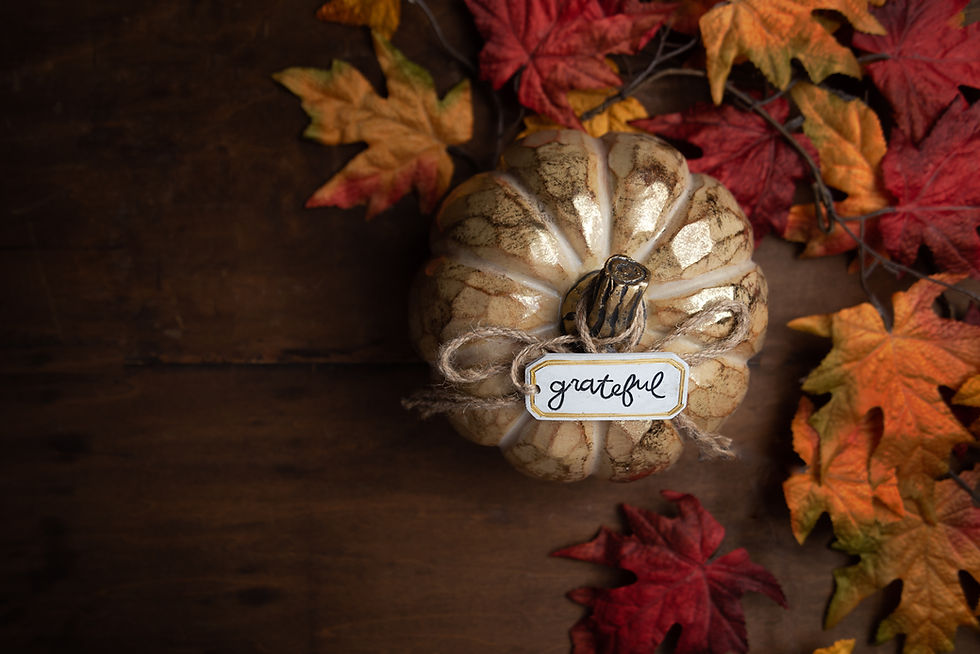Gratitude – A Key to A More Purposeful Life
- Steve Martin

- Nov 22, 2021
- 3 min read

Henry Van Dyke once wrote, “Be glad of life, because it gives you the chance to love and to work and to play and to look up to the stars; to be satisfied with your possessions; to despise nothing in the world except falsehood and meanness, and to fear nothing except cowardice; to be governed by your admirations rather than by your disgusts; to covet nothing that is your neighbor’s except his kindness of heart and gentleness of manners; to think seldom of your enemies, often of your friends…and to spend as much time as you can, with body and with spirit. These are the little guideposts on the footpath to peace.”
From Buddha to Cicero to Marcus Aurelius, philosophers and spiritual teachers over the centuries have used and recommended gratitude practices.
The world’s major religions, including Hinduism, Christianity, Islam, and Judaism, recommend gratitude as a morally beneficial emotional state that encourages reciprocal kindness.
Pastors, priests, parents, and grandparents have long praised the virtues of gratitude, but until recently, scholars have largely ignored it as a subject of scientific inquiry.
This has recently changed with a study by Dr. Michael McCollough, of Southern Methodist University in Dallas, Texas, and Dr. Robert Emmons, of the University of California at Davis, who have discovered that gratitude plays a significant role in a person’s sense of well-being.
The results of the study indicated that daily gratitude exercises resulted in higher reported levels of enthusiasm, determination, alertness, optimism and energy.
Additionally, the gratitude group experienced less depression and stress, was more likely to help others, exercised more regularly and made more progress toward personal goals. According to the findings, people who feel grateful are also more likely to feel loved.
McCollough and Emmons also noted that gratitude encourages a positive cycle of reciprocal kindness among people since one act of gratitude encourages another.
McCullough says these results also seem to show that gratitude works independently of faith. Though gratitude is a substantial part of most religions, he says the benefits extend to the general population, regardless of faith or lack thereof. In light of his research, McCullough suggests that anyone can increase their sense of well-being and create positive social effects just from "counting their blessings".
To do this (count your blessings), many people recommend that you keep a gratitude journal.
To keep a Gratitude Journal, just take a few minutes once a day and write – “Today I am grateful for …” and then complete the statement by making a list of everything (or at least five things) that you are grateful for.
You can also do this online by visiting https://gratefulness.org/practice/private-gratitude-journal/. This site also has more information about Gratitude.
The blog at http://ramkitten2000.hubpages.com/hub/100-things-thankful is an example of things that one might be grateful for.
I have also found the following 6-minute YouTube video by Louie Schwartzberg to be an incredibly powerful tool for understanding gratitude: http://www.youtube.com/watch?v=nj2ofrX7jAk .
I think that Albert Schweitzer summed it up best when he said, “To educate yourself for the feeling of gratitude means to take nothing for granted, but to always seek out and value the kind that will stand behind the action. Nothing that is done for you is a matter of course. Everything originates in a will for the good, which is directed at you. Train yourself never to put off the word or action for the expression of gratitude.”







Comments